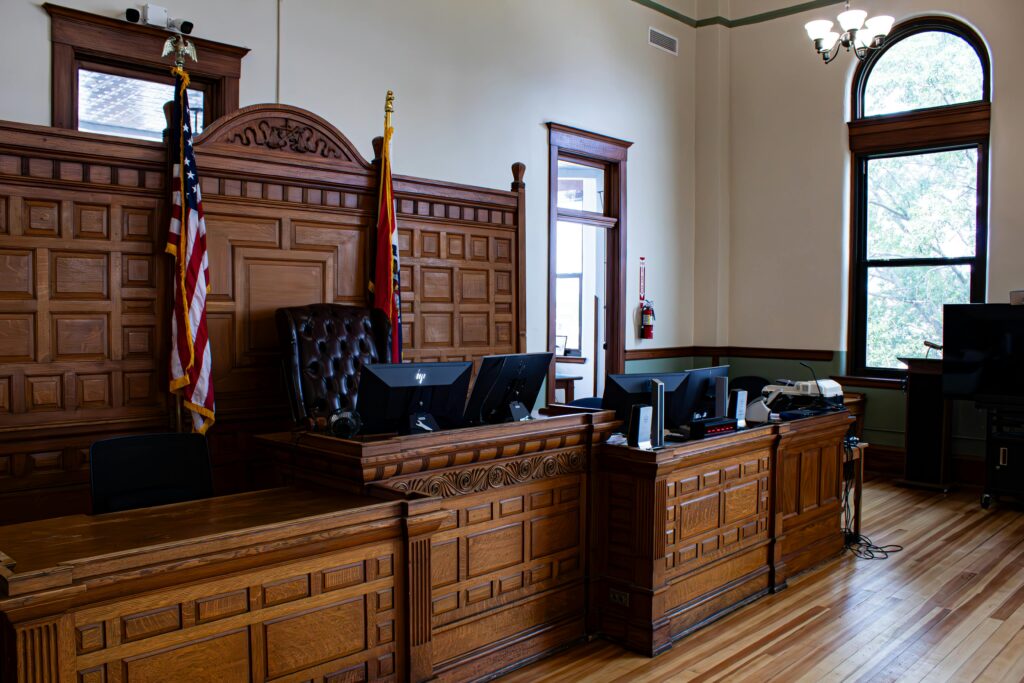Please refer to the post entitled Bringing a Personal Injury Claim to Court regarding the initial steps of bringing a personal injury claim to court. However, after the lawsuit is filed the case is just beginning. The other phases of the trial process can be very complicated and stressful. An experienced attorney can help you navigate these claims in court.
1. Discovery
After a Complaint is filed and the defendant files their Answer the discovery process begins. This stage is one of the most important parts of the process. Discovery is the phase where both parties exchange critical information and evidence. Through this process you can also determine the strength of both sides’ arguments based upon the evidence. In addition, you and your lawyer will be able to predict what defenses the other side will try to use against you. Keep in mind that discovery is governed by Mont. Code Ann. § 25-10 Subd. V.
There are three main types of discovery:
- Interrogatories: written questions to be answered under oath in writing.
- Depositions: a statement or testimony given under oath in front of a court reporter.
- Requests for Production: a request made to provide documents, data, recordings, physical items, etc.
2. Negotiations
Often times discovery will cause the defendant and the insurer to rethink their case. Quite a few personal injury cases end up settling before they ever get to a trial. Your attorney will review any settlement offers and advise you on whether to accept it or them. Most of the time, settlement negotiations will go back and forth multiple times before an agreement is reached.
While some cases settle through informal negotiations, there are options to involve an unbiased third party for assistance. Mediation is a common method used for settlement negotiations. This allows an unbiased third party (often an experienced trial attorney) to hear both sides’ argument and issue their opinion on the value of the claim. Parties to a lawsuit often develop tunnel vision. Involving a neutral third party in negotiations can help broaden their perspective and lead to a quicker resolution.
Settlement outside of Court is often the better option. Trials can be lengthy, expensive, and unpredictable. However the other party may not offer a fair settlement amount. If this occurs, your attorney will likely advise you to decline the offer and continue towards trial.
3. Trial

If a settlement is not reached during negotiations the case will proceed to trial. The preparation for trial consists of multiple different aspects. A few examples include:
- Submitting evidence and witness lists
- Jury Selection
- Pretrial motions
- Pretrial hearings
Once all of the preparations and prerequisites are taken care of you move into the actual trial. Trials can generally be broken up into 4 phases.
- Opening Statements: An overview presented by both sides of their case to the judge or jury.
- Presentation of Evidence: Presenting evidence and calling witnesses to give testimony. Each side can present and the other is given the opportunity to cross-examine.
- Closing Arguments: After everything is presented, both sides deliver a summary of their arguments and the case in an attempt to persuade the judge or jury.
- Jury Deliberation and Verdict: The jury or judge will deliberate and consider everything presented to them and will then make a final decision.
4. After the Trial
After a verdict is announced, both sides have the option to file a motion to challenge the decision. The option to appeal the decision to a higher court exists as well.
If the Court rules in your favor, you will be entitled to compensation. Typically, this is all laid out in the Complaint as well. Once the final amounts are determined, the attorney will deduct their fees and out-of-pocket costs, and you will receive the remaining compensation. It is important to note that it takes a few days after the trial to receive the funds.
Final Thoughts
Personal injury claims can be lengthy and emotionally taxing. But it is often necessary to secure the compensation you deserve. By working with a skilled personal injury lawyer, you can ensure that your case is handled professionally and that your rights are fully protected throughout the process.
If you’ve been injured and are considering filing a personal injury claim, contact us today at (406) 549-3323 for a free consultation. We are here to guide you every step of the way.
